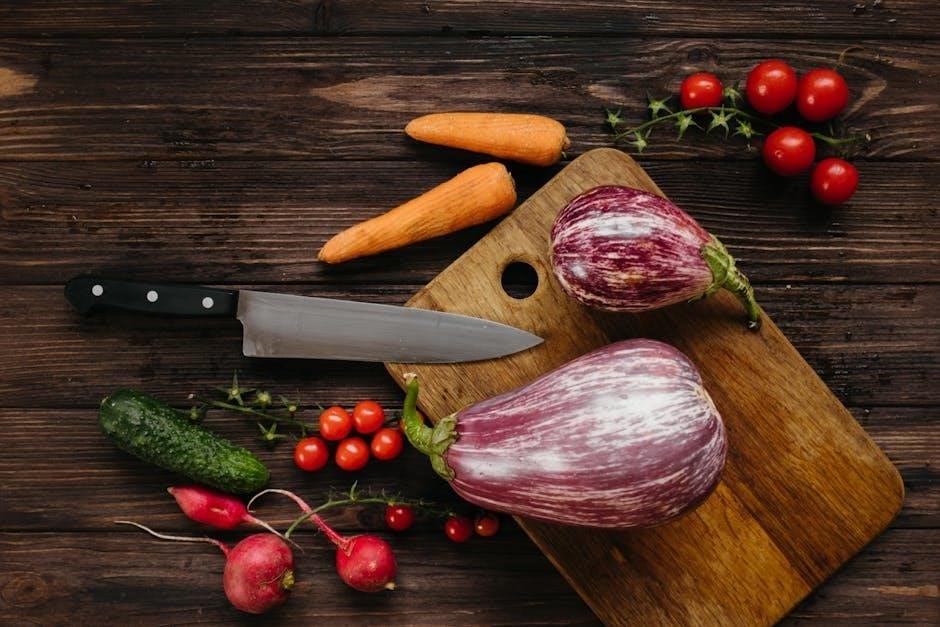30-Day Plant-Based Diet Plan PDF: A Comprehensive Guide
Embark on a transformative journey with our 30-day plant-based diet plan, available in PDF format. This comprehensive guide helps you unlock the vibrant flavors and health benefits of plant-based eating. Whether a seasoned vegan or just starting, this plan provides recipes, tips, and support for success.
Plant-based eating focuses on foods primarily derived from plants, minimizing or eliminating animal products. This includes fruits, vegetables, legumes, nuts, seeds, and whole grains. While some may associate it with veganism or vegetarianism, plant-based eating encompasses a broader spectrum. It’s about prioritizing plant-derived foods for optimal health and well-being.
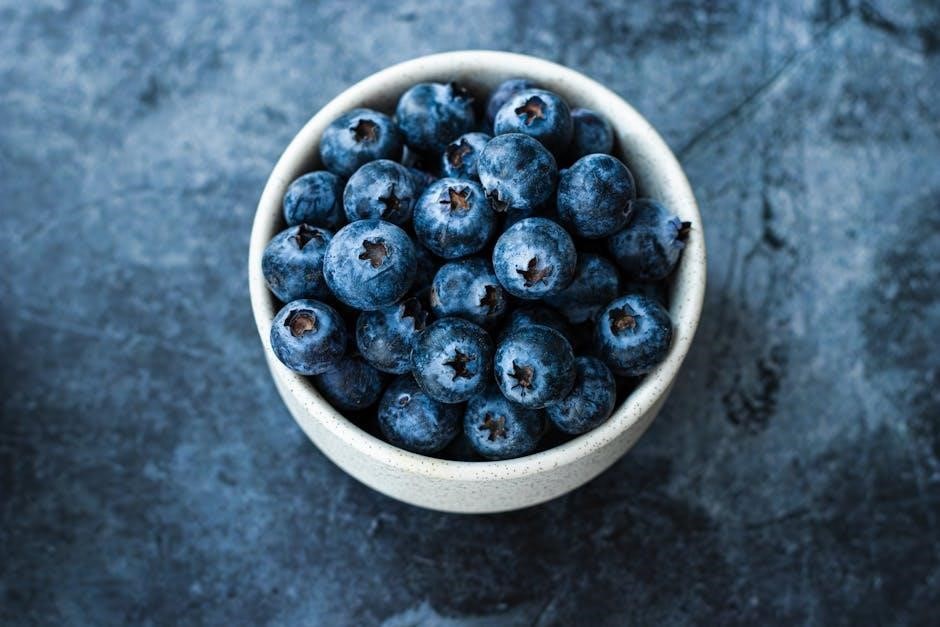
The core principle involves reducing reliance on meat, dairy, and eggs, instead emphasizing nutrient-rich plant sources. This approach can take various forms, from strictly vegan diets to more flexible approaches that occasionally include animal products. Mediterranean and flexitarian diets, which prioritize plants while allowing some animal products, also fall under the plant-based umbrella.
Adopting a plant-based lifestyle involves conscious food choices, focusing on whole, unprocessed foods. It’s about discovering new flavors, experimenting with diverse recipes, and nourishing the body with wholesome, plant-powered goodness. Whether motivated by health, environmental concerns, or ethical considerations, plant-based eating offers a sustainable and fulfilling path to a healthier you.
This 30-day plan provides a structured introduction, guiding you through the fundamentals and empowering you to embrace the abundance of plant-based cuisine. It is a journey to discover the diversity and nourishment of plant-based foods.
Benefits of a 30-Day Plant-Based Diet
Embarking on a 30-day plant-based diet can yield a multitude of benefits for your overall health and well-being. One significant advantage is improved heart health. Plant-based diets are naturally lower in saturated fat and cholesterol, contributing to lower blood pressure and reduced risk of heart disease. The abundance of fiber also aids in maintaining healthy cholesterol levels.
Weight management is another potential benefit. Plant-based foods are often lower in calories and higher in fiber, promoting satiety and aiding in weight loss or maintenance. The increased intake of fruits, vegetables, and whole grains provides essential nutrients without excessive calories.
Furthermore, a plant-based diet can enhance digestive health. The high fiber content promotes regular bowel movements and supports a healthy gut microbiome. This can alleviate digestive issues such as bloating and constipation.
Beyond physical health, a plant-based diet can also boost energy levels. Nutrient-rich plant foods provide sustained energy throughout the day, reducing the likelihood of energy crashes. The abundance of vitamins, minerals, and antioxidants supports overall vitality and well-being.
Finally, many individuals report improved skin health and reduced inflammation after transitioning to a plant-based diet. The antioxidants found in plant foods combat free radicals, promoting healthy skin and reducing the risk of chronic diseases. This 30-day plan will help you experience these benefits firsthand.
Foods to Include and Avoid
When embarking on a 30-day plant-based diet, understanding which foods to embrace and which to avoid is crucial for success. Focus on incorporating a wide variety of nutrient-rich plant foods. This includes an abundance of colorful fruits and vegetables, such as leafy greens, berries, and cruciferous vegetables like broccoli and cauliflower. Legumes, including beans, lentils, and peas, are excellent sources of protein and fiber.
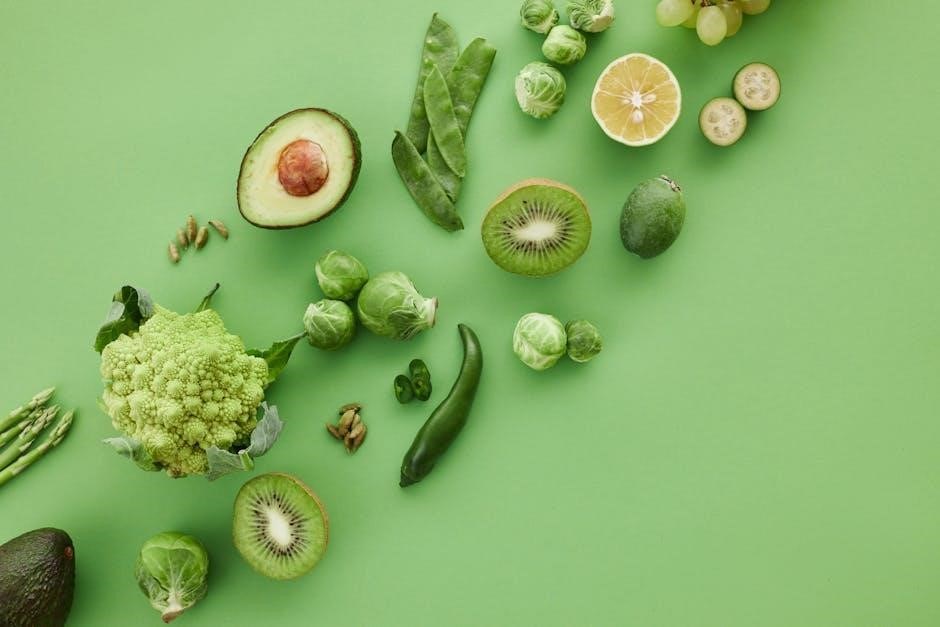
Whole grains like quinoa, brown rice, and oats should form the foundation of your meals, providing sustained energy and essential nutrients. Nuts and seeds, such as almonds, walnuts, chia seeds, and flaxseeds, are healthy sources of fats, protein, and fiber. Plant-based oils like olive oil and avocado oil can be used in moderation for cooking and dressings.
Conversely, certain foods should be limited or avoided on a plant-based diet. This typically includes all animal products, such as meat (beef, pork, poultry), fish, dairy (milk, cheese, yogurt), and eggs. Processed foods, sugary drinks, and excessive amounts of unhealthy fats should also be minimized. While some plant-based diets may include eggs and fish, this plan focuses on a completely plant-derived approach.
Be mindful of hidden animal products in processed foods, such as gelatin or whey. Reading food labels carefully is essential to ensure adherence to the plant-based guidelines. By focusing on whole, unprocessed plant foods and avoiding animal products, you can maximize the benefits of your 30-day plant-based journey.
Sample 30-Day Meal Plan
This sample 30-day meal plan offers a template for navigating your plant-based journey. It is designed to provide balanced nutrition and delicious variety, but feel free to adjust it to your preferences and dietary needs. Remember to stay hydrated by drinking plenty of water throughout the day. This plan provides general guidelines and does not offer specific calorie recommendations.
Each day typically includes breakfast, lunch, dinner, and optional snacks. Breakfast options might include oatmeal with berries and nuts, tofu scramble with vegetables, or a smoothie made with plant-based milk, fruits, and seeds. Lunch could consist of a hearty salad with chickpeas, a lentil soup, or a veggie wrap with hummus. Dinner options might include a plant-based pasta dish, a vegetable curry with brown rice, or a black bean burger on a whole-wheat bun.
Snack ideas include fruits, vegetables with hummus, a handful of nuts, or a small portion of trail mix. The plan emphasizes whole, unprocessed foods, but incorporates some convenient options for busy days. It encourages you to explore different plant-based recipes and find meals that you enjoy. Remember that this is a sample plan, so adjust portion sizes and meal choices to meet your individual needs and preferences.
This 30-day roadmap aims to provide a structured approach to plant-based eating, fostering healthy habits and introducing you to the versatility and deliciousness of plant-based cuisine. Consult with a healthcare professional or registered dietitian for personalized dietary advice.
Breakfast Recipes
Kickstart your day with these delicious and nutritious plant-based breakfast recipes. These recipes are designed to be quick, easy, and packed with essential nutrients to fuel your morning. Starting your day with a plant-based breakfast sets a positive tone for your entire day, providing sustained energy and supporting your overall health goals. These recipes are versatile and can be adapted to your taste preferences and dietary needs. Remember to adjust portion sizes to meet your individual calorie requirements.
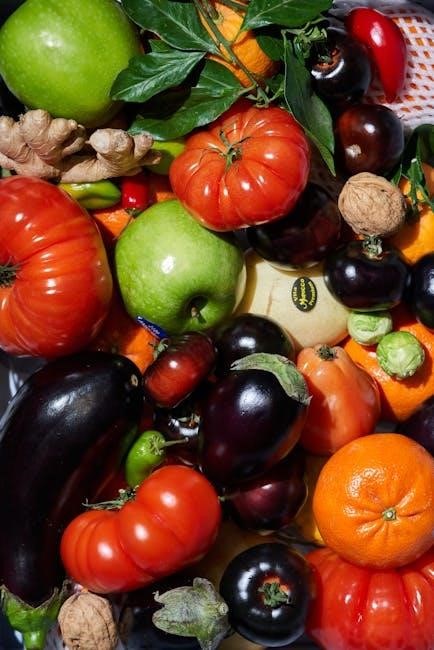
One popular option is Apple Cinnamon Oatmeal. This comforting classic is made with rolled oats, plant-based milk, diced apples, cinnamon, and a touch of sweetener like maple syrup. Another favorite is Tofu Scramble, a savory and protein-packed alternative to scrambled eggs. Simply crumble firm tofu and sauté it with your favorite vegetables, such as onions, peppers, and spinach, and season with turmeric for a vibrant color and flavor.
For a quick and refreshing breakfast, try a Berry Smoothie. Blend together plant-based milk, mixed berries, a banana, and a handful of spinach for a nutrient-rich and satisfying meal. Chia Seed Pudding is another excellent make-ahead option. Combine chia seeds with plant-based milk and your favorite toppings, such as fruit, nuts, and seeds, and let it sit overnight for a creamy and delicious breakfast.
These recipes offer a variety of flavors and textures to keep your breakfast routine exciting and enjoyable. Experiment with different ingredients and spices to create your own signature plant-based breakfast creations.
Lunch Recipes
Elevate your midday meal with these satisfying and flavorful plant-based lunch recipes, designed to provide sustained energy and essential nutrients. These recipes are perfect for busy weekdays, offering quick and easy options that can be prepped in advance or assembled in minutes. Focusing on whole, unprocessed ingredients, these lunches support your health goals while keeping your taste buds happy.
Consider a vibrant Quinoa Salad packed with colorful vegetables, such as bell peppers, cucumbers, and tomatoes, tossed in a lemon-herb vinaigrette. Alternatively, a hearty Lentil Soup provides warmth and comfort, loaded with fiber and protein to keep you feeling full and satisfied. You can also try a Mediterranean Couscous salad.
For a lighter option, enjoy a Leafy Green Salad with a variety of toppings, such as chickpeas, avocado, and sunflower seeds, dressed with a tahini dressing. Embrace the versatility of wraps with a Hummus and Veggie Wrap, filled with hummus, spinach, carrots, and sprouts. Leftovers also makes a great lunch.
These lunch recipes provide a diverse range of flavors and textures, ensuring that your midday meal is both enjoyable and nutritious. Feel free to experiment with different combinations of vegetables, grains, and dressings to create your own personalized plant-based lunch creations. By incorporating these recipes into your 30-day plant-based diet plan, you’ll discover that healthy eating can be both delicious and convenient.
Dinner Recipes
Conclude your day with these delectable and nourishing plant-based dinner recipes, designed to be both satisfying and easy to prepare. These recipes are perfect for weeknights, offering a variety of flavors and textures that will appeal to everyone at the table. Each dish is crafted with whole, plant-based ingredients, ensuring you receive essential nutrients while enjoying a delicious meal.
Try a hearty Black Bean Burger served on a whole-wheat bun with your favorite toppings, such as lettuce, tomato, and avocado. Or, savor the flavors of a Vegetable Curry simmered in coconut milk with a medley of vegetables like cauliflower, spinach, and sweet potatoes, served over brown rice. Pasta is also a good option.
For a comforting and flavorful meal, try a Lentil Shepherd’s Pie topped with mashed sweet potatoes or cauliflower. Alternatively, enjoy a colorful and nutritious Stir-Fry with tofu or tempeh and a variety of vegetables, such as broccoli, carrots, and bell peppers, tossed in a savory sauce. Pizza with vegan cheese is another great option.
These dinner recipes are not only delicious but also packed with plant-based protein, fiber, and essential vitamins and minerals. Feel free to experiment with different spices, herbs, and vegetables to create your own unique plant-based culinary masterpieces. By incorporating these recipes into your 30-day plant-based diet plan, you’ll discover that healthy and satisfying dinners are within easy reach.
Snack Ideas
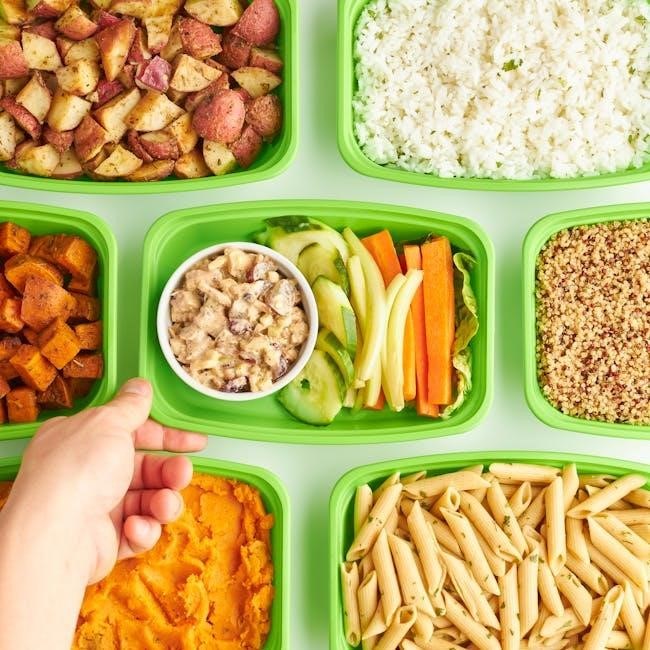
Keep your energy levels consistent throughout the day with these delicious and nutritious plant-based snack ideas. Snacking is an essential part of any healthy eating plan, and these options are designed to satisfy your cravings while providing essential nutrients. Choose from a variety of fruits, vegetables, nuts, seeds, and other plant-based goodies to keep you feeling full and energized between meals.
Enjoy a handful of almonds or walnuts for a boost of healthy fats and protein. Pair an apple or banana with a tablespoon of almond butter for a satisfying combination of fiber and protein. Fresh berries like strawberries, blueberries, or raspberries are a great source of antioxidants and natural sweetness.
Prepare a batch of homemade trail mix with a combination of nuts, seeds, dried fruit, and a sprinkle of dark chocolate chips. Carrot sticks, celery, and cucumber slices with hummus or guacamole are a refreshing and nutritious snack option. Edamame (steamed soybeans) are a great source of plant-based protein and fiber.
For a slightly more substantial snack, consider a small bowl of oatmeal with berries and nuts or a slice of whole-wheat toast with avocado and a sprinkle of red pepper flakes. Popcorn, air-popped and lightly seasoned, is a low-calorie and satisfying snack. Remember to choose snacks that are low in added sugars, unhealthy fats, and processed ingredients. These plant-based snack ideas will help you stay on track with your 30-day plant-based diet plan and keep you feeling your best.
Tips for Success on a Plant-Based Diet
Embarking on a plant-based diet is an exciting journey towards improved health and well-being. To ensure your success, here are some essential tips to keep you motivated and on track throughout your 30-day plan. First and foremost, plan your meals ahead of time. Knowing what you’ll be eating for each meal will prevent impulse decisions and ensure you have the necessary ingredients on hand.
Stock your pantry with plant-based staples such as legumes, grains, nuts, seeds, fruits, and vegetables. Having a well-stocked pantry makes it easier to prepare healthy and delicious meals. Explore new recipes and experiment with different flavors and cuisines. This will keep your meals interesting and prevent boredom.
Read food labels carefully to ensure products are truly plant-based and free from hidden animal-derived ingredients. Stay hydrated by drinking plenty of water throughout the day. Water helps with digestion and nutrient absorption.
Find a support system, whether it’s friends, family, or an online community. Sharing your experiences and getting encouragement from others can be incredibly helpful. Be patient with yourself. It takes time to adjust to a new way of eating, and there may be slip-ups along the way. Don’t get discouraged; simply get back on track with your next meal.
Listen to your body and adjust your plan as needed. If you’re feeling hungry, add more nutrient-dense foods to your meals. Celebrate your successes along the way. Acknowledge your progress and reward yourself for sticking to your plan. Remember, consistency is key to achieving your goals.
Adapting the Plan for Dietary Restrictions (Gluten-Free, etc.)
A plant-based diet can be incredibly versatile and easily adapted to accommodate various dietary restrictions. If you have specific needs, such as a gluten-free requirement, modifying the 30-day plan is entirely feasible. For those avoiding gluten, focus on naturally gluten-free grains like quinoa, brown rice, and oats (ensure they are certified gluten-free to avoid cross-contamination). Replace wheat-based products with gluten-free alternatives like gluten-free pasta, bread, and tortillas.
If you have nut allergies, substitute nuts and seeds with alternatives like sunflower seeds, pumpkin seeds, or hemp seeds. You can also use tahini (sesame seed paste) in place of nut butter.
For those with soy allergies, be mindful of soy-based products like tofu and tempeh. Instead, opt for other protein sources such as lentils, beans, and chickpeas. Consider using pea protein or rice protein as alternatives in smoothies or recipes.
Individuals with other dietary restrictions, such as those related to specific fruits or vegetables, should carefully review the meal plan and make substitutions accordingly. Always prioritize whole, unprocessed foods and ensure you’re meeting your nutritional needs with a variety of plant-based sources. Consulting with a registered dietitian or healthcare professional can provide personalized guidance and ensure your adapted plan is both safe and nutritionally adequate. Remember to always read labels carefully to avoid any allergens or ingredients that don’t align with your dietary needs.
Resources for Plant-Based Recipes and Support
Embarking on a 30-day plant-based diet is easier and more enjoyable with access to the right resources for recipes and support. The internet is a treasure trove of plant-based recipes, with countless websites, blogs, and social media accounts dedicated to vegan and vegetarian cuisine. Websites like Minimalist Baker, Oh She Glows, and Forks Over Knives offer a wide variety of delicious and easy-to-follow plant-based recipes.
For structured meal planning and recipe ideas, consider exploring plant-based cookbooks. Many cookbooks cater to different dietary needs and preferences, such as gluten-free, oil-free, or quick and easy meals. Some popular titles include “Plant-Based on a Budget” and “The Plantpower Way.”
Beyond recipes, support is crucial for staying motivated and overcoming challenges. Online communities and forums, such as those on Reddit or Facebook, provide a space to connect with others on a similar journey. These communities offer advice, encouragement, and a platform to share experiences and recipes.
Additionally, consider seeking guidance from registered dietitians or nutritionists specializing in plant-based diets. They can provide personalized meal plans, address nutritional concerns, and offer expert advice to ensure you’re meeting your dietary needs. Remember that support groups and educational resources can significantly enhance your success and make your plant-based journey a sustainable and fulfilling experience.
